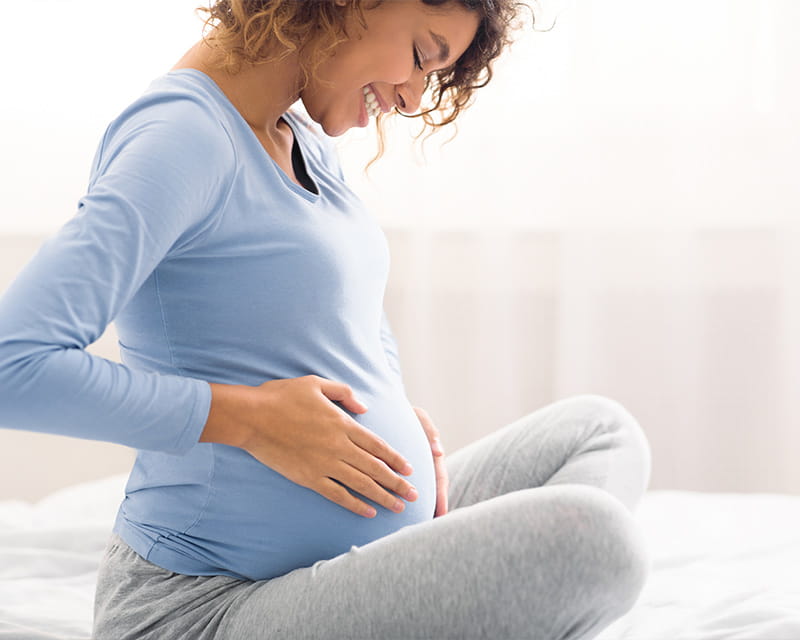
Improving care for menopausal women across all specialties
 There has been a general pattern of excluding pregnant women from drug trials due to medicolegal concerns and theoretical risks from maternal and fetal exposure. This left pregnant women vulnerable. Now, COVID-19 represents the latest area of exclusion, leaving physicians to make blind treatment choices. However, Ohio State Wexner Medical Center Maternal Fetal Medicine specialists are working to fill this gap of understanding to improve care for pregnant women and their babies.
There has been a general pattern of excluding pregnant women from drug trials due to medicolegal concerns and theoretical risks from maternal and fetal exposure. This left pregnant women vulnerable. Now, COVID-19 represents the latest area of exclusion, leaving physicians to make blind treatment choices. However, Ohio State Wexner Medical Center Maternal Fetal Medicine specialists are working to fill this gap of understanding to improve care for pregnant women and their babies.
Since the thalidomide crisis in the 1950s, when the drug was withdrawn after thousands of exposed women gave birth to babies with disabilities, strict research criteria has eliminated pregnant women—and often women of childbearing age—from most medical studies. “Because pregnant women represent a small market share and many drug companies perceive the liability of exposure to be high, it is common for studies to simply exclude this population,” explains Maged Costantine, MD. “This is true even for drugs that are routinely used during pregnancy—and now for drugs that are used for COVID-19.”
An April 2020 review of the clinical trials registry, completed by Dr. Costantine, along with Mark B. Landon, MD, also an Ohio State Maternal Fetal Medicine specialist and chair of the Department of Obstetrics and Gynecology, and colleagues, found that at least two-thirds of all trials and the vast majority of interventional trials specifically excluded pregnant women.
“When you consider that pregnant women are routinely given FDA-approved medications with no specifically tested guidelines for dosing or safety, the problem becomes clear,” Dr. Costantine says. “It’s actually unethical to exclude pregnant women from initial research because it ultimately puts them at higher risk when their physician is left to make drug selection and dosage based on information from non-pregnant populations.”
Dr. Costantine was recently invited to present his findings and be a panelist in a special meeting, “Developing Obstetrical-Fetal Therapeutics in the Era of COVID-19,” conducted on Sept. 15, 2020, and sponsored by the National Institute of Child Health and Human Development.
In their commentary article, “Protection by Exclusion: Another Missed Opportunity to Include Pregnant Women in Research During the Coronavirus Disease 2019 (COVID-19),” Dr. Costantine and co-authors note that although pregnancy was recently removed as a determinant of “vulnerable population” status, “the research community has yet to catch up.” They go on to argue that this has hindered progression of care, saying, “We need to advocate for a cultural shift within the research community to view this population as in need of more evidence, particularly in pharmaceutical research. Pregnant women should be permitted to determine their eligibility and entry into a research study based on the principle of informed consent.”